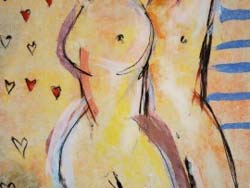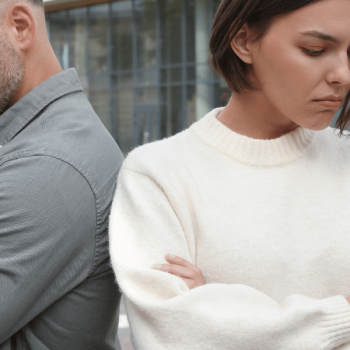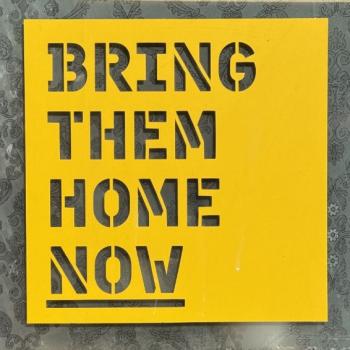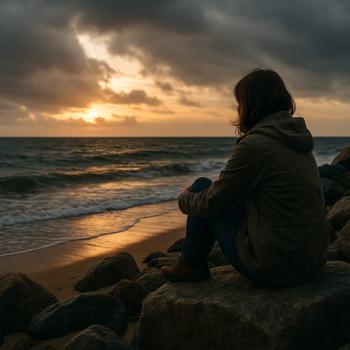By Kate Henley Averett
 One needs only to turn on the radio or open a newspaper today to get bombarded with opinions on the Catholic Church's teachings on sexuality. It may be one of the most talked-about topics these days, but it can feel like all the debate consists of is over-used sound bytes being flung around haphazardly at whoever may or may not be listening. Knowing that there's so much more to the topic of sexuality and Catholicism than editorials on the harmful effects of mandatory clergy celibacy or quips and clips about homosexuality, I decided to seek out a deeper conversation on the subject with some women who are graced with a particular talent for articulating their thoughts on the complexities of being Catholic.
One needs only to turn on the radio or open a newspaper today to get bombarded with opinions on the Catholic Church's teachings on sexuality. It may be one of the most talked-about topics these days, but it can feel like all the debate consists of is over-used sound bytes being flung around haphazardly at whoever may or may not be listening. Knowing that there's so much more to the topic of sexuality and Catholicism than editorials on the harmful effects of mandatory clergy celibacy or quips and clips about homosexuality, I decided to seek out a deeper conversation on the subject with some women who are graced with a particular talent for articulating their thoughts on the complexities of being Catholic.
So on a Tuesday evening at the end of March I sat down for such a conversation with Jessica Coblentz and Johanna Hatch, two of my co-contributors to the recently released volume of essays From the Pews in the Back: Young Women and Catholicism (2009, Liturgical Press). Aided by the marvels of modern technology, we each sat in front of our own laptops miles apart for a video-chat roundtable discussion on Catholicism and sexuality.
Kate: To start off, I was hoping we could each say a few words about where we are coming from, why we were interested in the conversation about sexuality and Catholicism. So whoever wants to jump in first -- what is it about the topic that interests you?
Johanna: I can go first. I think there are quite a few reasons I was really interested in this topic. It was really one of the first areas where I started questioning the Church, started forming my own opinions, started having to really deal with that whole question of my conscience not meshing with the official Church teaching. One of my earliest memories of the topic was in high school; one of my really good friends in our Catholic youth group came out as gay, and that created a lot of tension within the youth group and then he was kind of like rejected, and it was a real struggle for me because I didn't understand, it didn't make sense to me -- how could we, why would we turn him away? Why would we reject him? He was still the same person.
And then coming more into my feminist identity -- a lot of the issues of dealing with contraception and abortion -- within and against the Church has always been an area where I've really been trying to integrate those identities and trying to find some sort of peace with that. One of the reasons I was interested in this is that I feel like I'm in the area of "approved sexuality" by the Catholic Church if you will, being married to a man and being a mother, but in many ways I still feel like an outlaw when we talk about issues like contraception and identity and things like that.
Jessica: I would echo very similar experiences. I gave a talk about a week ago at a big Catholic conference in Los Angeles, and I was talking about young adult identity; at one, just one point in the talk, I mentioned that many of the young adults I know are concerned about sexuality. And after the talk, this older gentleman came up and confronted me and said, "Why is it always about sexuality and moral issues?" I heard his concern, but at the same time it struck me to respond, "Well, you know, if you want to know why it's always about sexuality, you should probably ask your bishop, not just me." Because on the one hand, I totally agree. I've had a lot of personal relationships with people who have struggled with the Church's positions on sexuality -- I struggle with the Church's positions on sexuality -- but also, I feel like so much of the public rhetoric about Catholicism surrounds sexuality that even if I wanted to escape it in my personal life I feel like it would be imposed on me in the public sphere.
Kate: I think that I tend to come at this topic on three different levels at the same time. The first is academic; I'm really interested in pursuing study on LGBT Catholics and the way that the struggle that you have both mentioned gets played out, and how spirituality is or is not attached to or detached from individuals' identity and their sexuality. I'm also interested in it from a ministerial perspective -- I did my M.Div. thesis work on models for doing ministry with LGBT Catholics, so I'm excited about ways of working with LGBT Catholic communities and working on issues of conflict with Church teaching and the integration of the spirituality and sexuality aspects despite that conflict. And then also on a really personal level, being an openly gay Catholic, obviously I feel like I have a lot at stake in conversations about Catholicism and sexuality, and that in a lot of ways my adult spirituality and my adult faith life have been about the tensions that are inherent in claiming both identities of being gay and being Catholic, and that my way of experiencing myself as a spiritual person is completely inseparable from that tension.




